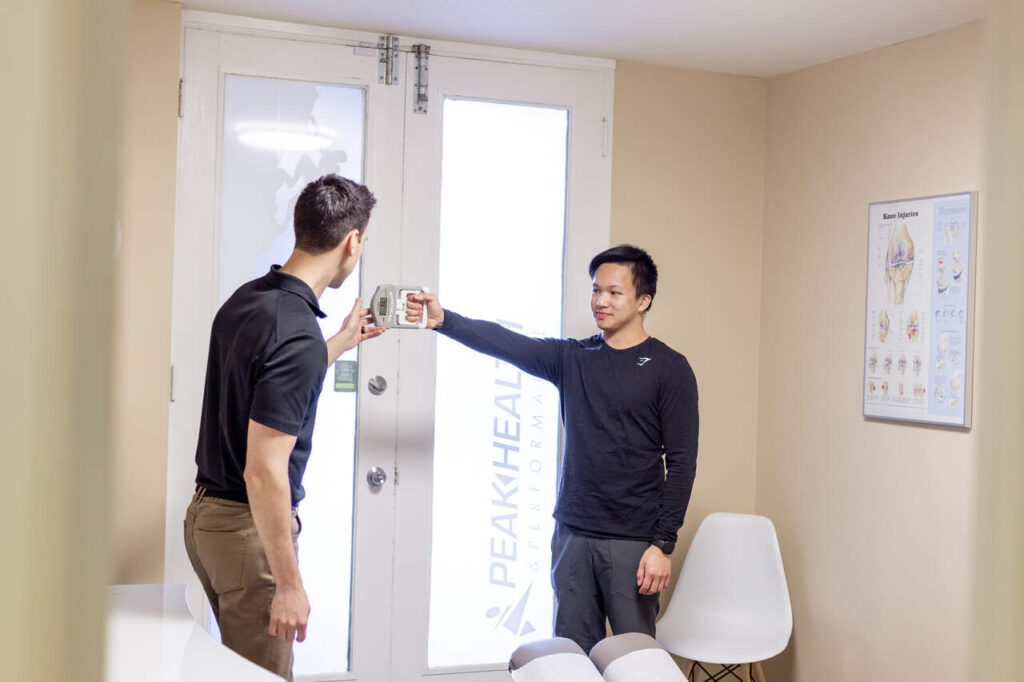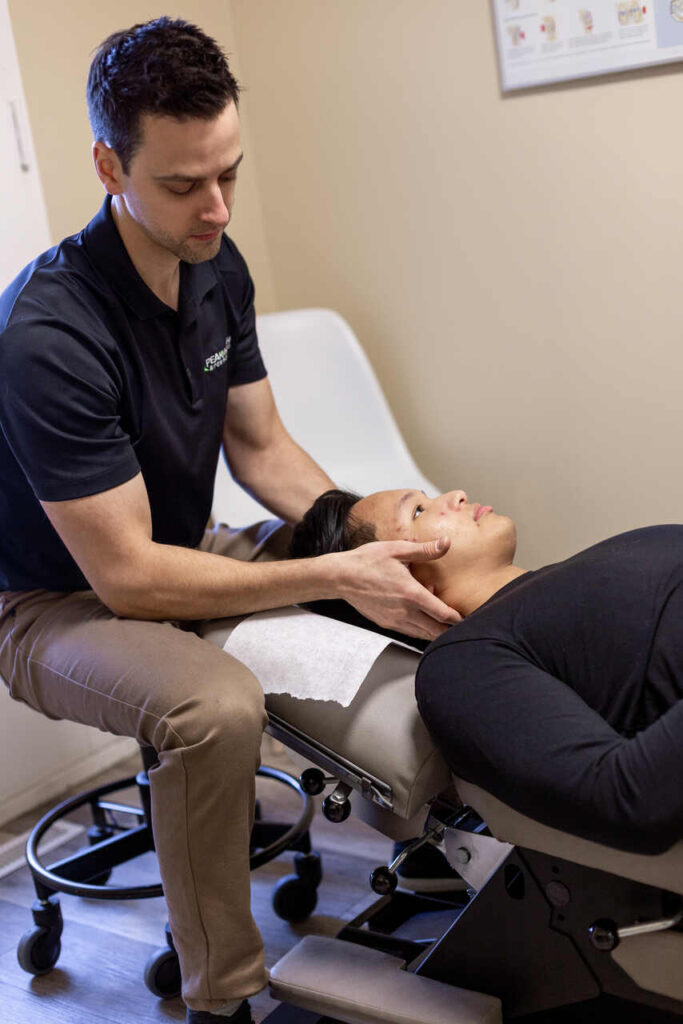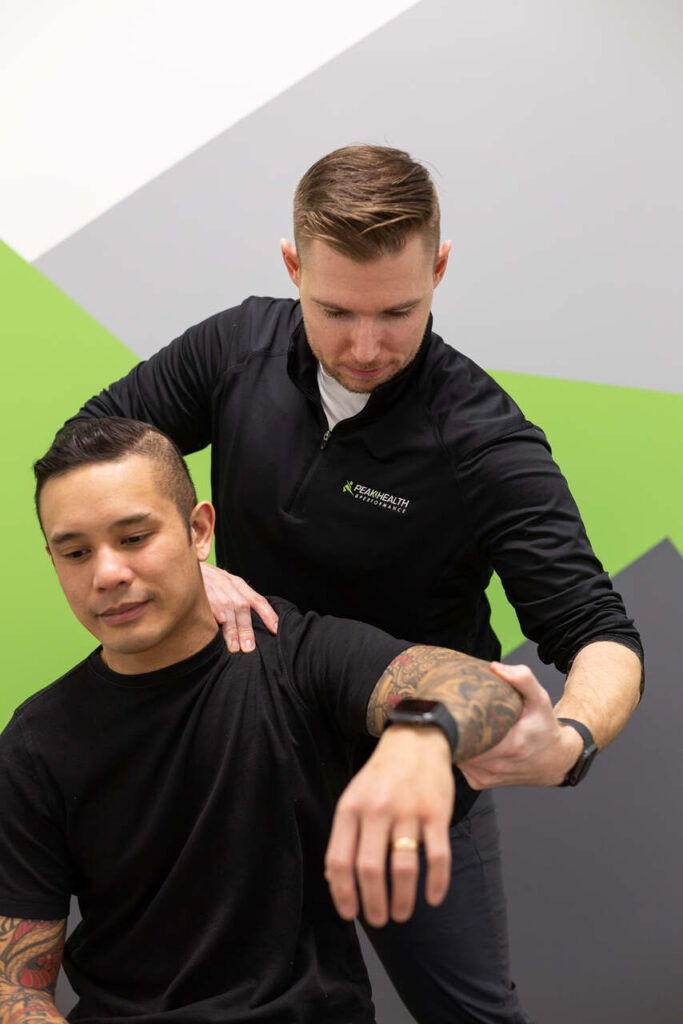Written by Dr. Riley Sjodin, Chiropractor
Concussions used to be thought of as a product of a high-impact sport or major accident, however, a concussion can actually be caused when there is no impact to the head at all. To learn a bit more about concussion management, read this summary below!
What Is a Concussion?
A concussion is a functional brain injury where a sudden acceleration/deceleration to the head, neck, and body results in forces being transmitted to the brain. This causes a shearing or twisting of the brain cells which ultimately leads to a concussion.
Symptoms of a Concussion
There are upwards of 20 different symptoms that can occur from concussion, but the most common symptoms are headache, pressure in the head, neck pain, trouble concentrating, fatigue, nausea, and dizziness.
Concussions are simply diagnosed by a mechanism of injury that has significant deceleration or acceleration of the body, followed by immediate symptoms or within hours of the injury. There is no such thing as grading a concussion (mild, moderate, severe) in the early phase. We always err on the side of caution so a patient does not put themselves at risk by going back into a dangerous sport/activity/environment.
The main signs of a concussion are a blank/vacant stare, delayed verbal & motor responses, confusion, inability to focus attention, disorientation, slurred speech, gross observable incoordination, inability to walk in tandem, memory deficits, or being knocked unconscious.
When Should I Seek Medical Attention?
If you suspect you have had a concussion you should monitor for deteriorating symptoms and go to emergency if you have any of the following:
- Severe or worsening headache
- Short-term memory loss or increasing confusion,
- Multiple episodes of vomiting
- Fluid coming from ears, nose, mouth, eyes
- Numbness or weakness in arms
- Lack of motor coordination, slurring speech
If you do not have any of these, then rest for 24-48 hours with no strenuous activity, take naps throughout the day as needed, have a proper balanced diet, and get assessed by a healthcare practitioner as soon as possible to ensure the proper recovery going forward.
The primary things to avoid if you suspect you have a concussion are:
- Do not play sports or return to activity before being cleared by a healthcare practitioner.
- Do not do any intense cognitive activity for 24-48 hours which may involve taking some time away from work/school.
- Do not take pain medications as this can “mask” your symptoms and make it difficult to assess your concussion. Talk to your medical doctor first.
- Do not drive for 24 hours just to ensure you are medically stable before getting behind the wheel.
How Long Will My Concussion Last?
In 60-70% of people, symptoms will resolve within 3-4 weeks, but for 30-40% of people, they can be longer. Fortunately, early treatment and assessment after an acute concussion greatly reduce this timeline.
The best way to ensure someone has fully recovered to their pre-injury levels is to have a baseline measure. This is very helpful in making informed and safe return-to-play decisions and is why Baseline Concussion Testing is recommended for anyone undergoing a high-risk sport (10 years of age or older). Whether you are an athlete or not, there are a multitude of tests & protocols to return someone to their daily routine safely.
Rest is no longer considered the only way to manage a concussion. Although it may be required in the initial steps, we often want patients doing low-intensity (sub-symptom threshold) activity around the house for the first few days. From there, we treat concussions in many ways and can include exercise physiotherapy, manual therapy (soft-tissue therapy, acupuncture, mobilizations), visual/vestibular therapy, diet/nutritional interventions, and education & reassurance.
Concussion Testing
If you or someone you know participates in impact sports, you may want to consider a Baseline Concussion Screen for accurate and personalized return-to-play guidelines should you sustain a concussion. If you are experiencing concussion symptoms and have not yet been assessed by a healthcare professional, we encourage you to do so as soon as possible.
